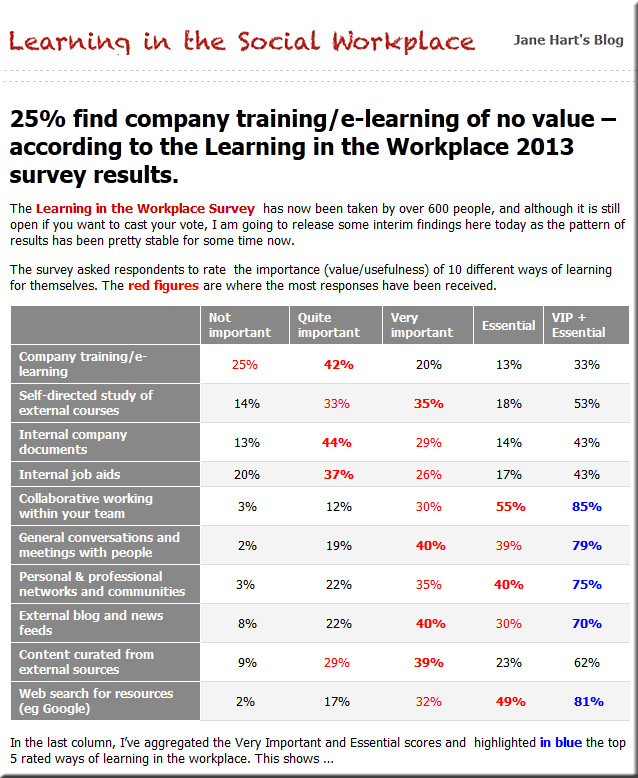From DSC:
This data further supports my thoughts on helping people build their own learning ecosystems — something Jane points out as well when she states that “workers find other (self-organised and self-managed) ways of learning at work far more valuable – with team collaboration being the highest rated.”
I recommend helping folks learn how to create their own blogs and learn how to subscribe to others’ blogs, access relevant wikis, use Twitter, employ Google Alerts, etc.
Provide each employee with some relevant names/blogs/websites/etc. to get employees started (i.e. of some knowledgeable accountants, legal counsel, product designers, engineers, digital marketing experts, cloud computing strategists, programmers for mobile computing apps, etc.). I realize this presents issues with companies’ sensitive information such as patents and/or intellectual property. But if Harold Jarche is correct in saying that we live in a post-jobs world, what we know of the modern corporation may be very different in just a few years anyway. (i.e. You’re on your own. You are your own corporation/business; so build your own brand and expertise. Build your own valuable network of peers/colleagues — who you can contribute to as well as to learn from.)
Admittedly, this changes some of the roles of the training department from creating e-learning modules to becoming excellent researchers, social media experts, quasi-librarians, etc.
(Come to think of it, I wonder if that might happen in higher ed as well — i.e. provide students with the relevant/key experts, important thinkers, streams of content, etc.)











